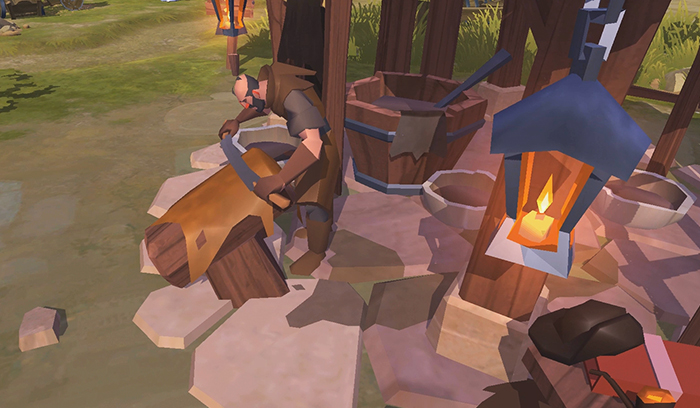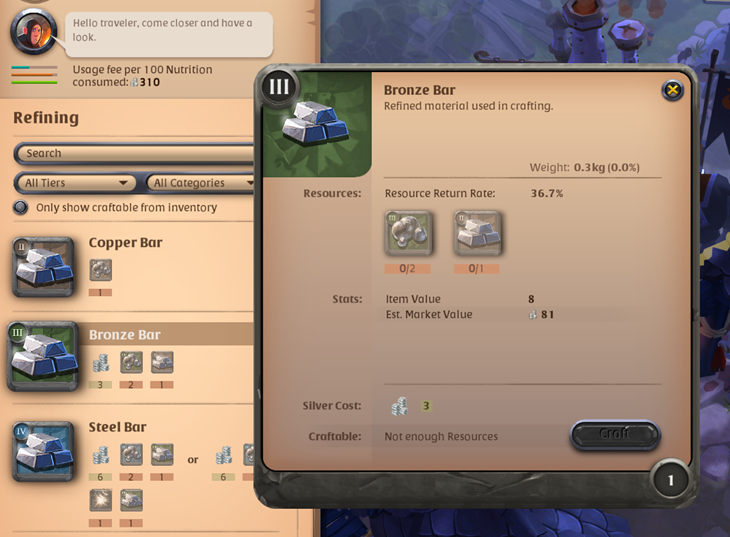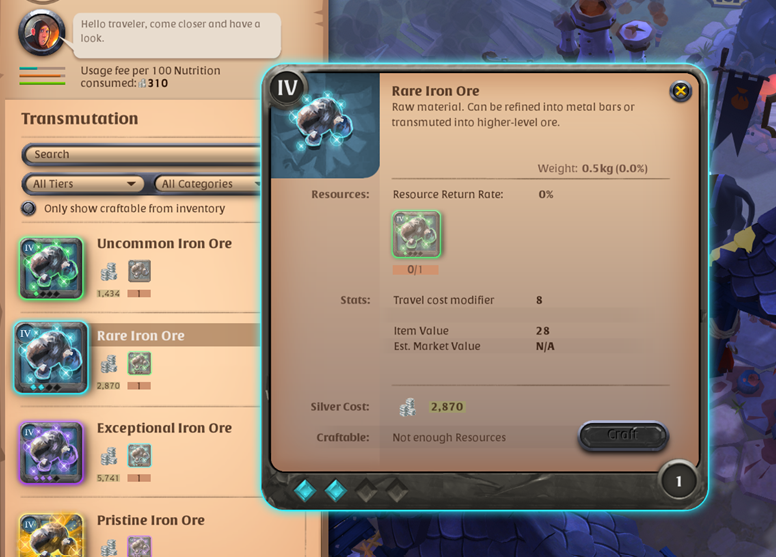Albion Online Refining Guide
Refining serves as a crucial intermediary step between gathering raw materials and crafting finished goods in Albion Online. This process transforms raw resources into refined materials, which are essential for crafting equipment or can be traded on the market for profit. To delve deeper into refining, it's beneficial to also refer to the Manufacturing and Market guides for comprehensive understanding and effective utilization of these refined resources.

Refining and Its Impact on the Albion Online Economy
In Albion Online, the process of refining plays a pivotal role in the intricate dynamics of the player-driven economy. Crafting high-quality equipment necessitates the acquisition of refined resources, and the constant ebb and flow of prices within the game's economy create opportunities for astute players.
The player-driven economy in Albion Online is characterized by its dynamism, with prices subject to continual fluctuations. Savvy players seize these fluctuations to their advantage by acquiring raw materials at opportune moments, refining them, and then strategically reselling the refined products at a profit. This cyclical process is a cornerstone of economic gameplay in Albion Online.
Several factors contribute to the high demand for refined materials:
1. Black Market Transactions: The Black Market, a unique feature in Albion Online, actively purchases equipment crafted by players. This demand for crafted goods incentivizes refiners to produce high-quality materials to support the creation of sought-after items.
2. Player Item Studies: Players engaging in the study of items drive demand for refined resources. The process of studying items requires specific materials, fueling a consistent need for refined goods on the market.
3. PvP Combat and Equipment Durability: PvP combat in Albion Online often results in equipment deterioration. As a consequence, players frequently need to replace or repair their gear. This perpetual demand for equipment contributes to the overall demand for refined resources.
While raw materials can be obtained by venturing into the open world, acquiring a sufficient quantity for refining higher-level resources may prove challenging. Consequently, many refiners turn to the in-game market to procure raw materials in bulk. This strategic reliance on market transactions ensures a steady supply of resources for refining, allowing craftsmen to meet the demands of both the Black Market and player-driven markets.
Refining Process
In Albion Online, the refining process is a crucial step in transforming raw materials into valuable refined products. To refine a resource beyond level 2, players must possess a refined resource of the lower level, and the amount of raw materials required increases with each subsequent level. The following table details the necessary components for producing one piece of refined material:
| Refinement Level | Required Lower Level Refined Materials | Necessary Raw Materials |
|---|---|---|
| Level 2 | - | 1 |
| Level 3 | 1 | 2 |
| Level 4 | 1 | 2 |
| Level 5 | 1 | 3 |
| Level 6 | 1 | 4 |
| Level 7 | 1 | 5 |
| Level 8 | 1 | 5 |
Note: The table continues with increasing refinement levels.
Enchantment and Stone Blocks Exception:
Refining enchanted resources introduces additional considerations. Enchanting requires enchanted refined material of the lowest level, except for level 4, which utilizes normal level 3 material.

However, stone blocks deviate from this standard due to their inability to be enchanted. When using enchanted stones for stone block refinement, the required amount of refined materials and the number of stone blocks created are increased. The impact of different types of stones on the refining process is as follows:
Rare Stones: Using rare stones doubles the investment and production, requiring twice as many refined blocks and resulting in twice the production of stone blocks.
Epic Stones: If epic stones are used, both the investment and production are multiplied by four.
Legendary Stones: Using legendary stones multiplies both the investment and production by eight.
Transmutation
When faced with a shortage of unrefined materials, players have the option to employ transmutation, a process allowing the transformation of low-level resources (minimum level 4) into higher-level or enchanted materials. This convenient feature can be accessed through the second tab of the corresponding crafting station. Transmutation serves to mitigate resource scarcity, keeping costs in check and enabling players to access higher-level materials even when they are in short supply.

Where is it refined?
Once the raw material has been obtained through gathering, transmutation, looting, or trading, players can take it to the building specialized in the material they wish to refine. It is very important to keep in mind that, depending on the manufacturing location, the return of resources may vary. This is due to local production bonuses , and is particularly relevant for refining. The table below shows the buildings and cities with the highest return rate for each resource:
| Resource | Manufactorin position | City |
|---|---|---|
| Boards | Sawmill | Fort Sterling |
| Bodies | Weaving | Lymhurst |
| Rock blocks | Quarry | Bridgewatch |
| Leather | Tannery | Martlock |
| Metal ingots | Foundry | Thetford |
These buildings can be found in cities, hideouts, and on guild or personal islands. Cities will always offer the best return rates, but players may have to pay higher taxes for using other players' crafting positions. Be sure to check the tax rate before refining large amounts.







